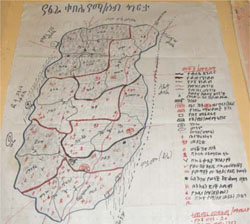16.1 Setting the scene for Alemitu’s case study
Alemitu was born and grew up in a kebele in a rural part of Ethiopia. She was a good school student and had always been interested in doing some sort of health work when she grew up. After completion of her secondary study, Grade 10, she noticed an announcement for training of Health Extension Workers. These workers would be trained at the Technical and Vocational School in her area and then deployed back to their local kebele. Alemitu was very keen to do this training and was thrilled when she was given a place as a trainee.
After one year of training, which included theoretical knowledge and skills she obtained in the classroom and practical skills sessions in health centres and a hospital in her district, Alemitu graduated as a Health Extension Worker. She was delighted when she was assigned to the Health Post in her home kebele as her first work area. Let’s pause here for a moment. Clearly being local to the area is likely to affect Alemitu’s role, but in what ways?
What do you think are the advantages and disadvantages for healthworkers when they work in their own community (like Alemitu), instead of in an unfamiliar community? Make a list of the possible advantages and disadvantages.
There are many obvious advantages to healthworkers like Alemitu working in their own community after they have been trained. They will know the local area and how difficult it is (or not) for people to access health facilities. They will know a lot about the social and cultural issues in their locality and of course be aware of the most serious health problems (Figure 16.1). They will also already know who the village leaders are and understand how decisions are made at community level. On the other hand, healthworkers who have grown up in the village in which they work will have to be especially respectful about issues such as confidentiality and privacy, because they already know a lot of personal details on the lives of community members. Alemitu will have to ensure that she works in a way that is ethical and equitable to all community members – including members of her own family. Alemitu will be known for roles other than a Health Extension Worker (for example a daughter, sister, school friend and so on). Some people may find this knowledge of her other roles quite hard to deal with.
 Figure 16.1 Knowing the geography, culture and people in the community in which you work is helpful in being able to provide effective health education and other health services. (Photo: Basiro Davey)
Figure 16.1 Knowing the geography, culture and people in the community in which you work is helpful in being able to provide effective health education and other health services. (Photo: Basiro Davey)
Learning Outcomes for Study Session 16
